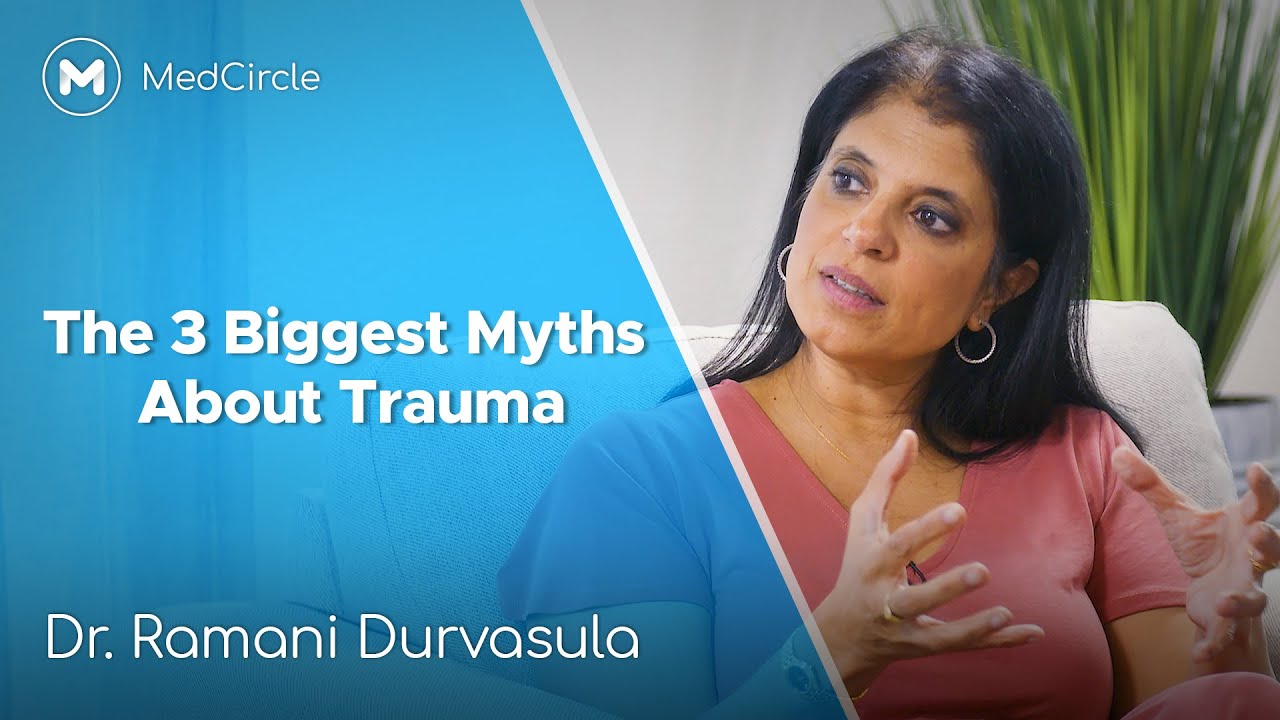This video is meant to expand your general knowledge about living a healthy life and is NOT a substitute for seeking medical advice. Please consult with your doctor before making changes in your health practices, diet and self-care.
In this video, clinical psychologist Dr. Ramani Durvasula and MedCircle host Kyle Kittleson discuss the three most common misconceptions about trauma.
Per Dr. Ramani, the first misconception is the general over-use of the term ‘trauma’, in reference to situations or events that really do not fall under the true definition. Unlike ordinary hardships, traumatic events tend to be sudden and unpredictable, involve a serious threat to life – like bodily injury or death – and feel beyond a person’s control. Most importantly, events are traumatic to the degree that they undermine a person’s sense of safety in the world and create a sense that catastrophe could strike at any time.
Secondly, there is the misconception that it is instantly apparent, simply by looking at them, if a person has suffered a trauma or not. This isn’t true; every person who has experienced a trauma processes it in a different way, depending on the severity of the experience, the person’s age, how recently the traumatic experience occurred, and so on. Certainly, how well ‘put together’ a person may seem in their interactions, has no correlation as to whether or not they have experienced trauma.
Here, Dr. Ramani also makes a point about resilience: she points out that just because someone struggles in the aftermath of a trauma, doesn’t mean they aren’t resilient.
Thirdly, and finally, the psychologist debunks the idea that a trauma arises purely from an experience that happened to us, directly. In fact, trauma can be experienced simply by witnessing an extreme event happening to someone close to us. An example of this is the development of post-traumatic stress disorder in people who, during a natural disaster, had witnessed someone else’s property – perhaps a neighbour’s or friend’s – being lost.
On the more positive front, recovery from trauma is possible through a variety of avenues, including seeking out psychotherapy. Recovery involves the successful ability to live in the present, without being overwhelmed by thoughts and feelings from the past. It does not constitute a complete absence of memories or feelings associated with the traumatic event, but rather involves placing the event behind us, so it no longer controls our emotions or life. Trauma recovery should be considered a process to be worked through over time, and in intentional stages.
Learn more about trauma here.
View the original video here.
Good Living is the Cyprus Mail’s portal of curated content from across the internet, showcasing local and global ideas, cultural highlights, and scientific and technological developments to inspire a sustainable life.






Click here to change your cookie preferences